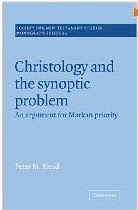This article looks at the debate about the extent and intent of the atonement during the Westminster Assembly in 1645, where the writers of the Westminster Confession asked whether it was possible to disagree with what is now sometimes called “limited atonement†without being an Arminian, and whether God intended to save some people or just to secure an offer of conditional salvation for all. It examines the background to the debate in the work of Archbishop James Ussher, the Synod of Dort, and hypothetical universalism or Amyraldianism. Lee Gatiss, currently working at Tyndale on 17th century biblical interpretation, concludes that the debate shows there was a spectrum of Reformed views on the subject within an overall Calvinist umbrella.
Shades of Opinion within a Generic Calvinism: The Particular Redemption Debate at the Westminster Assembly
This article looks at the debate about the extent and intent of the atonement during the Westminster Assembly in 1645, where the writers of the Westminster Confession asked whether it was possible to disagree with what is now sometimes called “limited atonement†without being an Arminian, and whether God intended to save some people or just to secure an offer of conditional salvation for all. It examines the background to the debate in the work of Archbishop James Ussher, the Synod of Dort, and hypothetical universalism or Amyraldianism. Lee Gatiss, currently working at Tyndale on 17th century biblical interpretation, concludes that the debate shows there was a spectrum of Reformed views on the subject within an overall Calvinist umbrella.
Subscribe to:
Post Comments (Atom)













No comments:
Post a Comment